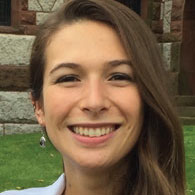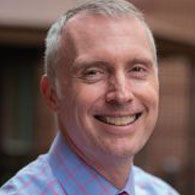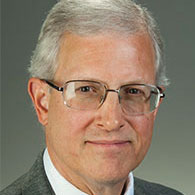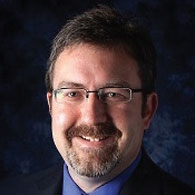Rural PREP program does that and more for future docs
Students preparing for underserved practice
Tlalli E. Moya-Smith is passionate about serving rural, native and migrant communities. While a first-year student at the Geisel School of Medicine at Dartmouth College, Moya-Smith felt fortunate to attend a conference tackling a problem that educators and researchers have struggled with for decades: how to make sure there are enough well-trained health care professionals to take care of rural populations.

The Rural Training Track Collaborative annual meeting was sponsored in part by the Collaborative for Rural Primary care Research, Education and Practice (Rural PREP). Entering the second of its five years of funding from the U.S. Department of Health and Human Services’ Health Resources and Services Administration, the mission of Rural PREP is to improve and sustain rural health through community engagement and research in primary care health professions education.
Thanks to travel and meeting support from Rural PREP, Moya-Smith had a crucial opportunity to talk to and make connections with people who are doing the work that she envisions herself doing after earning her medical degree. “Being able to talk to rural doctors about what their experiences are is very helpful in determining whether this is really what I want to do,” she says. “Hearing their stories and what their lifestyles are like is invaluable.”
Shifting the focus to rural areas

Davis Patterson, PhD, University of Washington research assistant professor of family medicine and project director of Rural PREP, describes the U.S. education system for health professionals as disproportionately urban-centric. “That’s a problem for rural communities,” he adds.
“If we want people to practice in rural communities, we need to recruit our students from there, and we also need to educate them there,” Patterson says. “It’s not just a health equity issue, it’s a matter of economics. It’s expensive to educate health professionals. We should be putting those education dollars to work in the communities that will employ the providers. Plus, it’s a source of local pride when a local area is able to help educate and train its own health workforce.”
Research, community of practice and spreading the word

Rural PREP takes a multi-pronged approach, explains Randy Longenecker, MD, the project’s associate director and assistant dean of rural and underserved programs at Ohio University Heritage College of Osteopathic Medicine:
- "First, we do two or three research projects on health professions education each year.
- Second, we build a community of practice, which involves a number of activities,” Longenecker says. “We put on research design and dissemination studios, where we invite people to bring their ideas for new research or a research project they’re already working on and get input from the community of practice.”
- “Third, Rural PREP disseminates research and best practices,” Longenecker says. “Many studies of rural health professions education are done, but the results aren’t always shared effectively. We use our website, videos on social media plus attendance at annual conferences and meetings to get information to the end users as quickly as possible.”
Moya-Smith and two of her colleagues from the Rural Health Scholars at Dartmouth were fascinated to learn about community-based participatory research in a pre-conference workshop sponsored by Rural PREP. The program also builds a community of practice through monthly Rural PREP rounds, including grand rounds in a team-based learning format and professional development webinars. These events bring people from rural communities and health professional training programs around the country together online to learn about a particular topic.
It’s easy to get involved
Moya-Smith is even more interested in a rural residency now than she was before attending last spring’s conference. Just as she was rewarded for taking the initiative to get involved with Rural PREP, she encourages others to take advantage of the same opportunity. “I’m really looking forward to the conference next year,” she says.

Rural PREP provides funding for travel to participate in its activities and present research at conferences. It welcomes involvement, whether you’re a rural primary care health educator, student, researcher, practitioner or administrator.
“Rural PREP represents an exciting opportunity for National Rural Health Association members,” says NRHA president David Schmitz, MD, the program’s lead for dissemination and chair of family and community medicine at the University of North Dakota School of Medicine & Health Sciences.
“NRHA members are likely to be the direct beneficiaries of Rural PREP, so they should learn about what we’re doing and find ways to get involved,” Schmitz adds. “A great starting point is ruralprep.org.”
